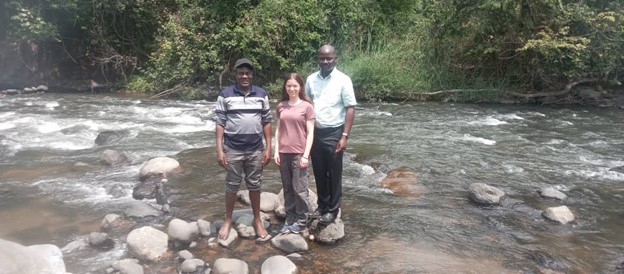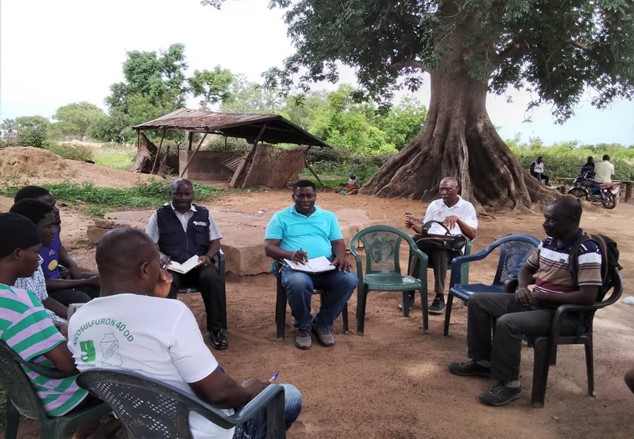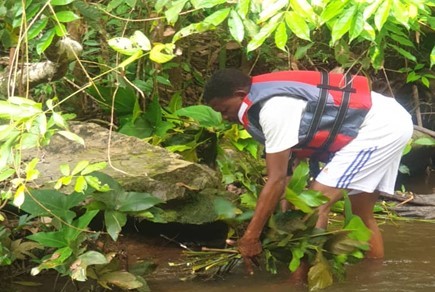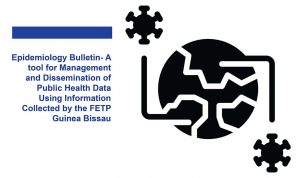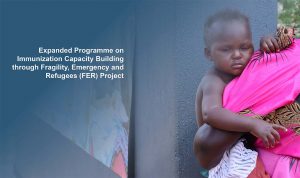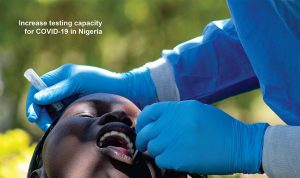Research on Neglected Tropical Diseases (NTDs)
-
by
AFENET
Since 2012, AFENET has received three 5-year cooperative agreements from the US CDC to support efforts to eliminate neglected tropical diseases (NTDs) in the sub-Saharan Africa region. The current 5-year cooperative agreement was awarded in October 2018 to implement operational research to provide evidence for control and elimination of NTDs and building the capacity of NTD programs in sub-Saharan Africa to effectively respond to the high burden of NTDs.
Currently, AFENET in partnership with NTD departments of ministries of health and US CDC is conducting operational research projects to support onchocerciasis control and elimination in 6 strategic countries, namely, Benin, Gabon, Ghana, Liberia, Uganda, and Tanzania (Figure 1).
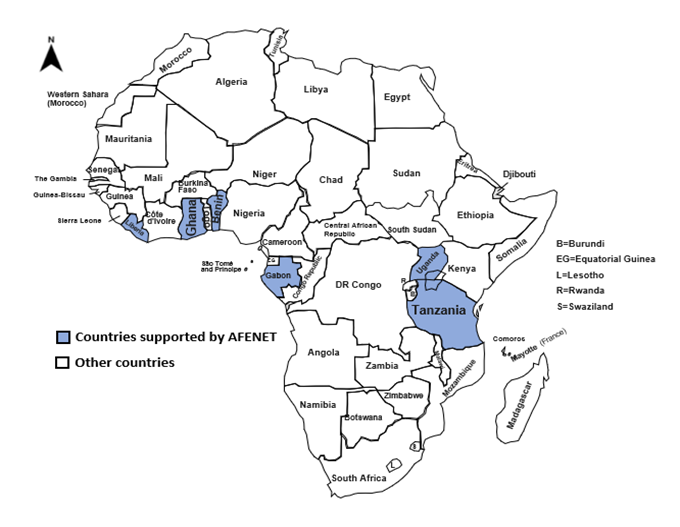
Ongoing operational studies include:
1. Evaluating whether ivermectin mass drug administration (MDA) stoppage threshold can be safely adjusted from the current Onchocerca volvulus antigen 16 (Ov-16) sero-prevalence of ≤0.1% to ≤2%: This is a 5-year study being implemented in 3 countries, namely, Benin, Ghana, and Tanzania (Figure 2).
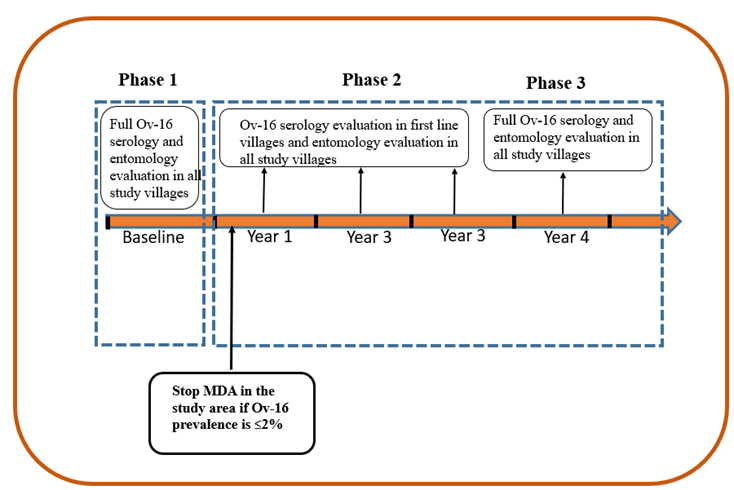
1. Evaluation of the effect of the “slash and clear” intervention on black fly biting rates: The “slash and clear” study is a 3-year study that started in November 2022 and is being done in two river systems (River St Jones and River Zelebah) situated in forested regions of Liberia. The objective is to evaluate the effectiveness of removal of vegetation from black fly breeding habitats on the reduction of black fly populations.
2. Understanding onchocerciasis transmission dynamics in a hypo-endemic ivermectin-naïve areas of Central Gabon: The current onchocerciasis elimination efforts target hyper-and meso-endemic areas leaving out the hypo-endemic areas. The omission of hypo-endemic areas might compromise the elimination efforts. The aim of this study is to explore whether independent transmission occurs in a hypo-endemic ivermectin-naïve areas of Gabon. The objectives of the study are to: i) Assess black fly vector density and infectivity in selected sites along a river system, ii) Determine the nodule prevalence in the selected hypo-endemic communities, iii) Determine the microfilaria prevalence in the selected communities, iv) Determine visual loss associated with onchocerciasis infection, and v) Conduct serological mapping in communities within 15 km from vector breeding sites.
3. Evaluation of the Diagnostic Tests in Areas Hypo-endemic for Onchocerciasis in Uganda: This longitudinal study is being conducted in Kitgum and Lamwo districts in Northern Uganda. The overall aim of the study is to evaluate the diagnostic tests in areas hypo-endemic for onchocerciasis in Northern Uganda. The study evaluates the distribution of anti-Ov-16 antibody and other markers of O. volvulus infection in multiple age groups, assess if serologic threshold that modeling suggests is consistent with interruption of transmission, and monitor for sero-reversion of anti-Ov-16 antibody positivity in selected cohorts.
Action pictures
